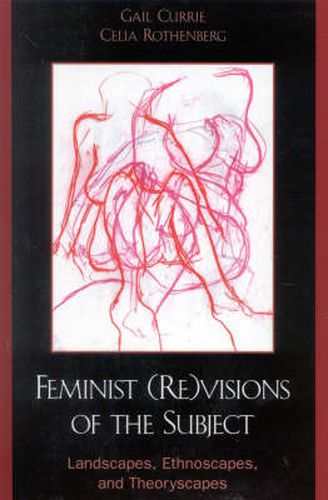Readings Newsletter
Become a Readings Member to make your shopping experience even easier.
Sign in or sign up for free!
You’re not far away from qualifying for FREE standard shipping within Australia
You’ve qualified for FREE standard shipping within Australia
The cart is loading…






Feminist (Re)visions utilizes the study of space and place-which extends through sociology, anthropology, cultural studies and area studies, historical perspectives, and philosophy-as a paradigm for cross-disciplinary inquiry. Noting that both the study of space/place and feminism are transected by the lines of spacial, conceptual, and ontological disintegration in contemporary academia, Gail Currie and Celia Rothenberg have culled a collection of writings drawn together from feminist scholars across several disciplines to address three questions: how are subjects constituted in relation to the spaces and places they occupy; how are those spaces and places in turn negotiated and transformed; and how are feminists actively constructing new visions of the female subject in the context of the postmodern academic terrain? This work sets the stage for the development of a productive feminist praxis in an academic world some fear has been relativized and depoliticized by the postmodern turn.
$9.00 standard shipping within Australia
FREE standard shipping within Australia for orders over $100.00
Express & International shipping calculated at checkout
Feminist (Re)visions utilizes the study of space and place-which extends through sociology, anthropology, cultural studies and area studies, historical perspectives, and philosophy-as a paradigm for cross-disciplinary inquiry. Noting that both the study of space/place and feminism are transected by the lines of spacial, conceptual, and ontological disintegration in contemporary academia, Gail Currie and Celia Rothenberg have culled a collection of writings drawn together from feminist scholars across several disciplines to address three questions: how are subjects constituted in relation to the spaces and places they occupy; how are those spaces and places in turn negotiated and transformed; and how are feminists actively constructing new visions of the female subject in the context of the postmodern academic terrain? This work sets the stage for the development of a productive feminist praxis in an academic world some fear has been relativized and depoliticized by the postmodern turn.